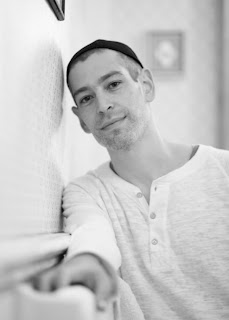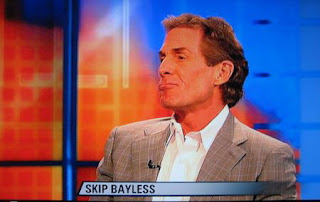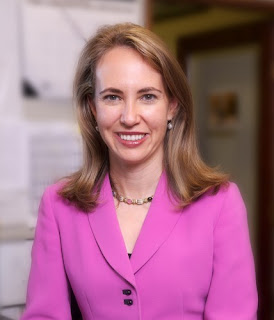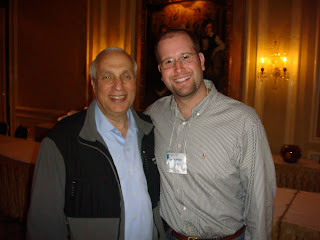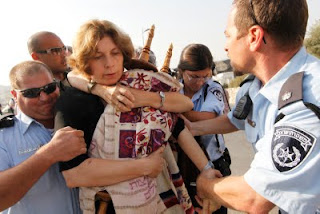My mother isn’t/wasn’t Jewish, my father is. I was raised Reform, had a Bat mitzvah, [was Jewishly educated, celebrated holidays, identify as Jewish, participated in the Jewish community, did not participate in or celebrate any other faith or religion,] etc. If I have children with a man recognized as fully Jewish, how would they be seen in the eyes of Israel and the American Jewish community (particularly the Conservative movement)? How stable are Israel’s laws around this — could they change in 10 years? What about Halachah (Jewish law)? I would really appreciate an answer, even if it’s not what I want to hear. Thank you!
This is the question I was presented with from the website Jewish Values Online. Over the past few years I have answered dozens of values-based questions from this website. I haven’t dodged a single question, and I’ve attempted to respond to each questioner in a timely fashion. Admittedly, I have procrastinated writing a response to this question for several months.
Why? Because I am a Conservative rabbi and this is perhaps the most challenging question that a Conservative rabbi can be asked in the beginning of the 21st century. My Reform and Orthodox colleagues were able to respond to this question in a much more timely fashion. The Reform rabbi is able to cite his movement’s historic 1983 resolution establishing that “if the child is raised exclusively as a Jew and one parent is Jewish, then the child is recognized as a Jew in Reform communities regardless of the gender of the Jewish parent.” The Orthodox rabbi frames his answer with words like “difficult” and “painful” but ultimately cites Halacha (Jewish law) as unable to recognize the children (or grandchildren) of a Jewish man and non-Jewish woman as Jews without benefit of conversion.
Like many Conservative rabbis this issue hits home with me. I have a first cousin who, by definition, is not considered Jewish according to Halacha. That means that according to the Conservative Movement’s Rabbinical Assembly, of which I’m a member, I am not permitted to officiate at her wedding should she marry an individual deemed Jewish according to Halacha. That marriage would be considered an intermarriage without a formal conversion, and the children of that marriage would not be considered Jewish from a Halachic definition. This cousin has been raised Jewish, attended Hebrew School, became a bat mitzvah in a Reform congregation and considers herself Jewish. To complicate matters, her younger brother underwent a formal conversion in the mikveh after having a bris on the eighth day and is therefore regarded as Jewish according to Halacha. I’m not sure that there could be a more confusing example of the mess that has been created with Jewish identity in the modern American Jewish world.
Before making any recommendations as to how to resolve this issue or how I will respond to the question above, it is important to understand that the Reform Movement’s 1983 resolution allowing patrilineal descent didn’t create this mess, but it did complicate it further. In the almost 30 years since that decision, there has been much crossover between the Conservative and Reform movements in America. Thus, when the Reform movement issued its resolution (which was in the works for more than 35 years), it might have thought the implications would be wholly positive and would really only impact Reform Jews (the resolution specifies “in Reform communities”). However, that resolution has had negative impacts on both the Conservative and Modern Orthodox movements. The question of “Who’s a Jew” has less implications for the Orthodox Jews in America as it is unusual for them to marry outside of their sect. It is when a Modern Orthodox or Conservative young person wants to marry an individual who has been considered Jewish through the Reform movement’s notion of patrilineal descent that we are posed with the problem. Jewish young people in these more liberal denominations interact throughout adolescence and the college years in youth groups, summer camps, Israel trips and college Hillels. Additionally, following college Jewish communal organizations like Federation and B’nai Brith do not distinguish between patrilineal Jews and matrilineal Jews at young adult singles’ events.
We are now facing head on the inter-denominational challenges that have arisen from the Reform movement’s resolution as the children of that era are now of marriage age and having their own children. In response to the question above from the Jewish Values Online website, I would respond as follows:
There is no question that you have been raised in a family that has embraced Judaism, Jewish culture and Jewish values. You have grown up identifying as a Jewish person and because of your father’s Jewish heritage, you have a claim to the birthright of the Jewish people. The Reform denomination of Judaism, in which you have affiliated, acknowledges you as a full-fledged member of the Jewish people for all purposes. Should you marry a man who is Jewish through matrilineal descent, it would be advisable that you undergo a formal conversion so there would be no Halachic issues concerning your children’s Jewish identity.
Matters surrounding Israel’s legal system as it pertains to Jewish identity should not be an issue for you unless you plan to immigrate to Israel and become a citizen. Should that be the case, I would advise you to inquire about those issues at that time and not worry about them now. Like all civil laws, they have the ability to change over time based on Israel’s government at the time and the authority and opinion of the Chief Rabbinate.
As you acknowledged, this might not be the answer you want to hear, but at this time it is the reality. A conversion for someone in your situation (raised Jewishly, who identifies as Jewish) is intended to make your Judaism more legitimate from a Halachic perspective. It should not be understood as undermining your religious identity throughout your life. It is a conversion in a different category than an individual becoming Jewish from another religion altogether. Consider it a technicality.
My ultimate goal is to remove such problems in the future so these painful questions don’t arise in the future. It is first important to acknowledge that this is a matter full of nuance and the American Jewish community is made up of very different communities who will never agree on most issues. That being said, this issue must be resolved for Jews from the more liberal movements of modern Judaism (Reform, Reconstructionist, Conservative, Modern Orthodox) whose followers are marrying each other and raising families together.
Over the years, there have been several recommendations to fix this matter. Some have suggested mass conversions for all Jewish children before bar or bat mitzvah. Others have recommended that all brides and grooms go to the mikveh as a form of conversion before the wedding to assure Halachic Jewish status.
My proposal is to set a time limit on the status quo. Until the year 2020, matrilineal descent is the only accepted form of passing Jewish status genetically. Jewish individuals who are raised Jewish in a home with a Jewish father and identify as Jewish are to be considered Jewish from a cultural perspective, but must undergo a formal conversion for recognition as Jewish from a Halachic understanding.
After the year 2020, it will be understood that because of modern genetic testing (DNA tests) it is now possible to ascertain patrilineality with complete certainty. Therefore, a Jewish individual with at least one Jewish parent will be considered Jewish from a Halachic perspective for all matters. While the Orthodox will not agree to this, it will not have the same negative implications as the fissure between the Reform and Conservative movements that has existed for the past three decades.
The leaders of the American Jewish community should begin collaborating on such a partnership agreement. Only if we are on the same page on the matter of Jewish status will we be able to seek harmony among the disparate denominations of liberal Judaism. We cannot allow the ultra-Orthodox to dictate the definition of a Jewish individual, but we also cannot allow ourselves to be fractured by our own differing definitions of Jewish status. There has been far too much controversy and pain for this situation to continue unresolved.
Cross-Posted to the Huffington Post


